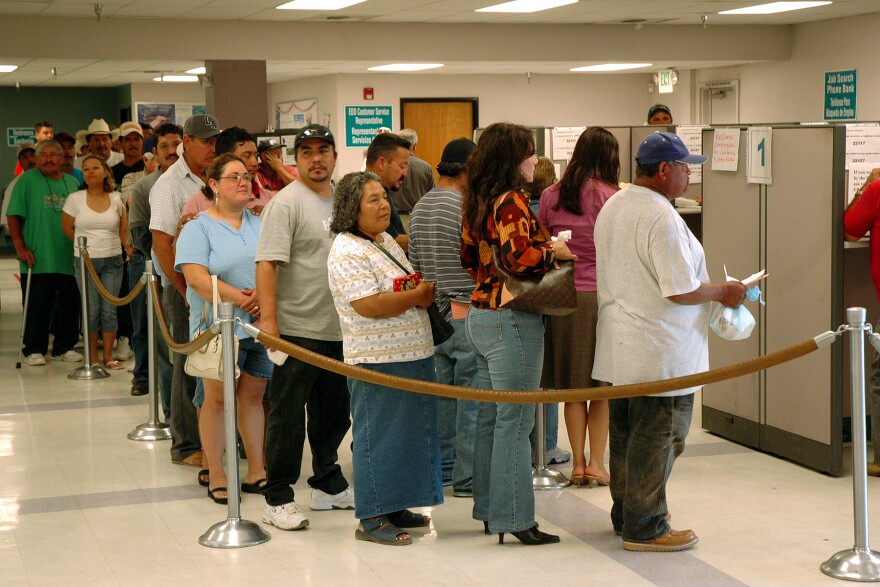North Carolina lawmakers voted last year to end long-term unemployment benefits.
The move meant the state stopped accepting money from the federal government for workers who had been out of a job for 20 weeks or more. Legislators said they made the change in order to start paying down more than $2 billion in jobless benefits the state already owed to the federal government.
The change also cut the maximum amount on weekly checks and shortened the time an individual may receive benefits. Proponents said the cuts would encourage unemployed workers to find jobs while opponents said it would hurt those workers and slow down the economic recovery. And both sides say their predictions have come true. But some economists say there’s no evidence either way.
Guest host Phoebe Judge talks with Justin Wolfers, senior fellow at the Brookings Institution and author of a recent New York Times article, “North Carolina’s Misunderstood Cut in Jobless Benefits"; John Hood, president of the John Locke Foundation; and Alexandra Sirota, director of the Budget and Tax Center at the North Carolina Justice Center.
Hood wrote a column for the Wall Street Journal, arguing North Carolina's policy changes have helped the state's economy.
Sirota recently wrote a report for the North Carolina Justice Center that says cuts to unemployment insurance are threatening the economy.









